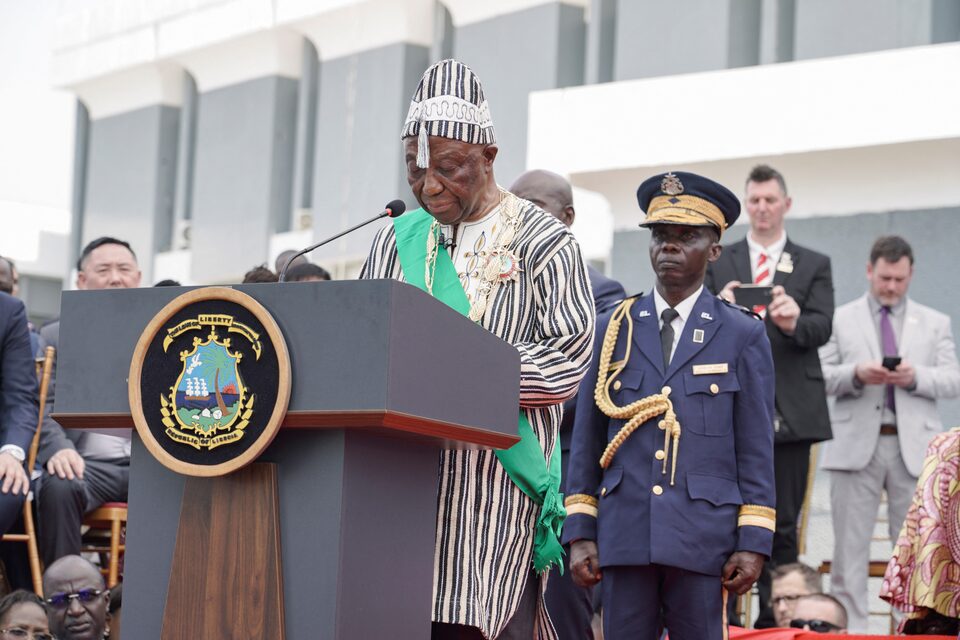
On Foreign Investors and Economic Growth Revitalization, Liberia has to look closer home
Not ‘Business as Usual’
In his 100 days in office, the new Liberian president, Joseph Boakai, invited foreign investors into his country in a message characterized by a “ not business as usual” declaration. This bold statement challenges the traditional African investment model, where intra-African trade is limited while raw resources are exported and finished goods are imported. In the age of the African Continental Free Trade Area (AfCFTA) and revitalized regional trade blocs, the president’s vision is pivoted on self-sufficiency and regional collaboration.
The aspiration of Africa’s capability to utilize its natural resources to feed itself and export surplus is a goal underlined in the AfCFTA agreement as the continent seeks to invest in critical agricultural, automobile, pharmaceutical, and transport and logistics industries. While looking elsewhere is a much-needed trade and economic growth impetus, a renewed integration of markets within the continent is needed for a “not business as usual” effect. While African countries remain open to international business and investors, it is critical to understand what trade should constitute, especially for disadvantaged nations such as Liberia.
Market and Economic Freedom Scores
In what should renew the government’s push for the integration of markets within the continent, Kenya realized a record $1.22 billion (Ksh 164.04 billion) surplus from its international trade. Underlying the healthier Kenyan trade balance is a continued focus on comparative advantage areas serving neighbouring countries with cement clinkers, lubricants, wheat flour, food preparations, and kerosene-type jet fuel. This is a call for the Liberian president to prioritize the removal of trade barriers with African countries to ease the movement of goods, services, and labour through enhanced interrogation through trade blocs and the AfCFTA. A post-civil war Liberia should have every desire to benefit from the ambitious AfCFTA agreement that seeks to create a single market of 1.4 billion people and a $3.4 trillion economic output.
“The country must, therefore, be ready to eliminate internal reasons for friction when goods and services cross borders and into the nation to enhance economic growth and development.”
Records indicate that the Liberian government occasionally intervenes in pricing with commodity prices, such as predetermined cement and fuel prices, in addition to major foreign investors having contracts with the government under specific project financial obligations. The government has 16 specific business categories reserved for Liberian nationals with set minimum investment requirements for foreign-owned businesses. This creates restrictions for investors, even within the continent, seeking to venture into the continent, persisting the nation’s reliance on export prices given the nation’s political risks.
Liberian has an overall inefficient regulatory environment that is unconducive for entrepreneurial activity. Its business freedom score and labour freedom rank way below the world average at 34.6% and 43.6%, respectively, indicating the need for more open borders to enhance trade and investment with other African states. Similar below-average scores are recorded on property rights protection, judicial effectiveness, and government integrity, which limit the country’s attractiveness to investors within and outside the continent. Thus, while looking to trade organizations such as the AfCFTA to enhance integration and collaboration with other nations, it is time for Liberia to look at reducing internal trade barriers.
Exploiting Natural Abundance
Liberia is richly endowed with natural resources, water, and a favourable climate. Its principal exports are iron ore, rubber, diamonds, gold, and emerging palm oil and cocoa interests. This is a common occurrence in many African countries where the inefficient exploitation of resources continues to benefit foreigners while citizens languish in poverty. While Liberia may not be ready to manufacture aircraft and automobiles, it holds immense potential in developing industries that add value to its natural resources. Opening up the economy to investment by abled Africans and collaborating for private-public partnerships on value addition, mechanization, digital solutions, and digital solutions can prepare the country for enhanced resource exploitation.
Liberia can nurture a vibrant industrial base that supports its trade ambitions by fostering a business environment conducive to growth. Specifically, the agricultural sector’s potential presents opportunities for investors to add value to the already competitive industry. Moreover, regional Integration, rule harmonization, and reduced trade and non-trade tariffs would allow the nation to leverage regional differences for better value chains and access input and infrastructure needs. The country must, therefore, be ready to eliminate internal reasons for friction when goods and services cross borders and into the nation to enhance economic growth and development.
While it is not lost on the importance of accessing diverse and endowed investors, Liberia must streamline its trade processes and reduce barriers that hinder the flow of goods to enhance and boost trade with other African nations. Simplifying customs procedures, reducing tariffs, and harmonizing standards with other African countries can significantly boost trade efficiency. It is also time for the nation to embrace digital technologies in trade, such as electronic single windows, to enhance efficiency and reduce costs, making it easier for businesses to trade within and outside the country.
A transparent and accountable business environment is essential for attracting regional investment and ensuring fair trade practices. The nation must prioritize creating an efficient and transparent process for registering businesses to attract regional investors and facilitate investment in processing facilities and infrastructure projects. With corruption being cited as a significant economic growth stumbling block, the onus on President Boakai to spearhead the creation of robust legal frameworks and law enforcement that will create a level playing field for regional businesses, fostering trust and encouraging trade partnerships.
Embracing Regional Partnerships
Liberia cannot achieve food security and regional food export ambitions in isolation. Continued collaboration with neighbouring countries, such as within trade blocs and the AfCFTA, creates a win-win scenario for the nation. Understanding the specific food needs of neighbouring countries allows Liberia to tailor production to meet existing demand. Through collaborations, the nation can benefit from knowledge transfer from other African nations in critical agricultural and mining industries, enhancing economic revitalization. Moreover, partnering with countries with processing capabilities can lead to joint ventures, where Liberia provides raw produce, and its neighbours process it into finished goods for regional markets.
Liberia’s success in enhancing intra-African trade is closely tied to its integration into regional economic communities (RECs) such as the Economic Community of West African States (ECOWAS). Active participation in these communities can provide access to larger markets, foster economic cooperation, and facilitate the movement of goods and services across borders. Bilateral and multilateral trade agreements can create a more cohesive and robust African trade network, reducing reliance on external markets and building a self-sustaining continental economy.
Success in intra-African trade will improve Liberia’s food security, enhance regional food security, create jobs, and foster economic integration across Africa. Liberia stands at the threshold of a transformative era, guided by a vision prioritising self-sufficiency, economic diversification, and enhanced intra-African trade. Thus, in shaping President Boakai’s commitment to no business as usual, creating a mechanism for enhanced intra-African trade is a critical starting point in differentiating from normal populist and political bickering.



